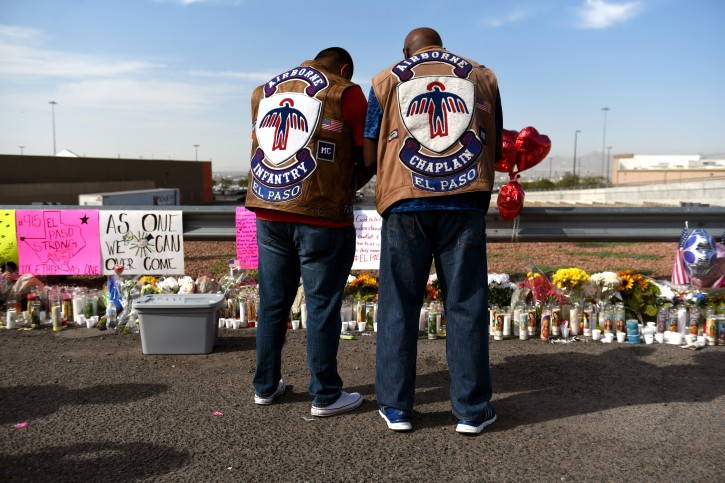INVITE CARLOS B. GIL TO TALK ON MEXICAN IMMIGRATION TO THE MEMBERS OF YOUR ORGANIZATION IN ENGLISH OR SPANISH THROUGH HUMANITIES WASHINGTON
How? (See Spanish below)
Applications are open to host a Speakers Bureau event for 2019. Learn more and apply today at https//www.humanities.org/program/speakers-bureau/
If you have any questions? Contact Hannah Schwendeman at hannah@humanities.org or call 206-682-1770 ext. 101
What is Humanities Washington?
Humanities Washington’s Speakers Bureau is a statewide program that offers high-quality speakers who give engaging presentations on history, politics, art, and everything in between. Funding, resources, and promotion are provided to create successful events in your community. Last year, we partnered with over 175 organizations to reach more than 12,000 Washington residents.
Take a look at our 33 new speakers, carefully selected for their expertise, exciting topics, and ability to inspire discussion at, https//www.humanities.org/programs/upcoming-speakers/
Check out Carlos B. Gil as the Humanities Washington speaker on Mexican immigration here: https://www.humanities.org/speaker/carlos-gil/
Name of Gil’s talk:
“From Mexican to Mexican-American: A Family Immigration Story.”
As immigration has become more hotly debated in the United States, the arguments have become cartoonish, with one side often painted as naïve and another as xenophobic. What has become lost is the human story of immigration to America, with all its complexity, heartache, and hope.
Carlos B. Gil sought to understand Mexican immigration to the United States by tracing his family’s history from the 1920’s to the 1970’s. In the process, he discovered the excitement, culture shock, inter-family conflict, and questions of identity that so many face who are seeking a better life in another place. Based on his book, We Became Mexican-American: How Our Immigrant Family Survived to Pursue the American Dream, his talk explores these topics, including immigration to Washington State, all through the lens of a single family’s story.
Carlos B. Gil is an Emeritus Professor of History at the University of Washington, where he taught the history of Mexico and other Latin American countries for over thirty years. He previously toured the state offering a public lecture entitled, “The Hispanization of the United States.” A Spanish language version of his book will be available in early 2019.
Gil lives in Seattle.
This talk is available in both English and Spanish.
INVITA A QUE CARLOS B. GIL DÉ UNA CHARLA ACERCA DE LA INMIGRACIÓN MEXICANA A LOS MIEMBROS DE TU ORGANIZACIÓN A TRAVÉS DE HUMANITIES WASHINGTON
¿Cómo?
Haz tu solicitud. Las solicitudes están abiertas para presentar la charla del profesor Gil o cualquier otro evento del Buró de Conferencistas de Humanities Washington para el año 2019. P uedes obtener más información y presentar tu solicitud hoy en https // http://www.humanities.org / program / speakers-bureau /
¿Si tienes alguna pregunta? Pónte en contacto con Hannah Schwendeman en hannah@humanities.org o llama al 206-682-1770 ext. 101.
Nombre de la charla del profesor Gil:
De mexicano a mexicano-americano: la historia de una familia inmigrante.
A medida que la inmigración se ha debatido más acaloradamente en los Estados Unidos, los argumentos se han vuelto caricaturescos, con un lado pintado a menudo como ingenuo y otro como xenófobo. Lo que se ha perdido es la historia humana de la inmigración a Estados Unidos, con toda su complejidad, angustia y esperanza.
El profesor Gil trató de entender la inmigración mexicana a Estados Unidos al rastrear la historia de su propia familia desde la década de 1920 hasta la de 1970. En el proceso, descubrió la emoción, el choque cultural, el conflicto entre familias y las cuestiones de identidad que enfrentan muchos que buscan una vida mejor en otro lugar.
Basada en su libro, We Became Mexican American: How Our Immigrant Family Survived to Pursue the American Dream, esta charla explora estos temas, incluyendo la inmigración al estado de Washington, todo a través de un lente puesto a la historia de su familia.
Carlos B. Gil es profesor emérito de historia en la Universidad de Washington, donde dictó clases de la historia de México y otros países de América Latina durante más de treinta años. Anteriormente, realizó una gira por el estado ofreciendo una conferencia pública titulada “La hispanización de los Estados Unidos.” Una versión en español de su libro estará disponible en los primeros meses de 2019.
El Profesor Gil vive en Seattle.
Él puede dar esta charla en inglés y español.









